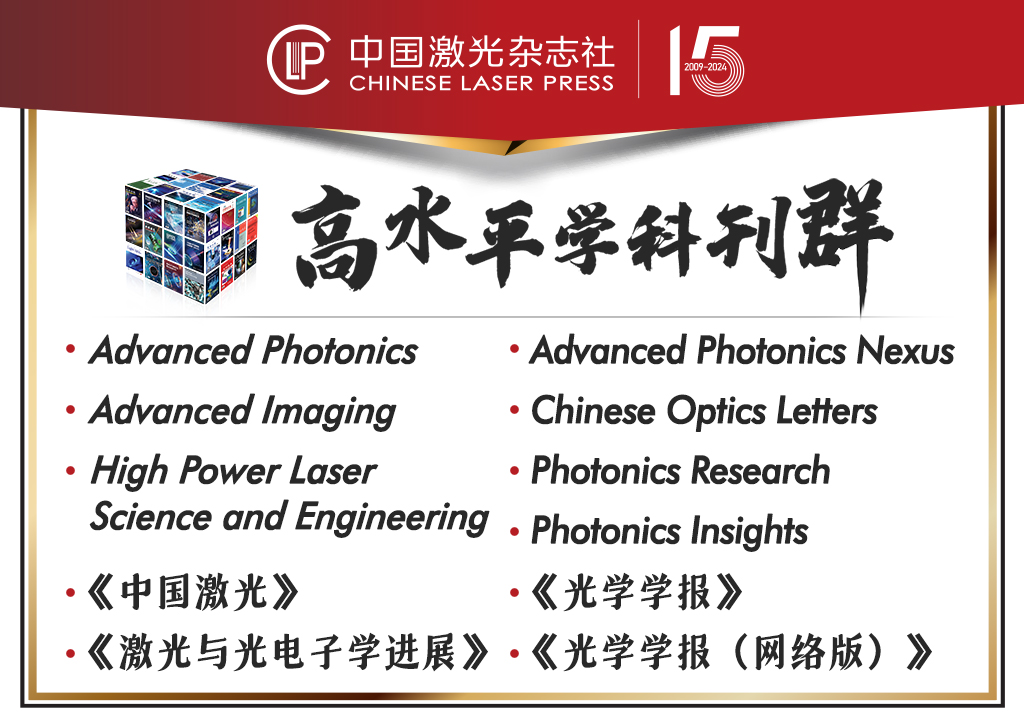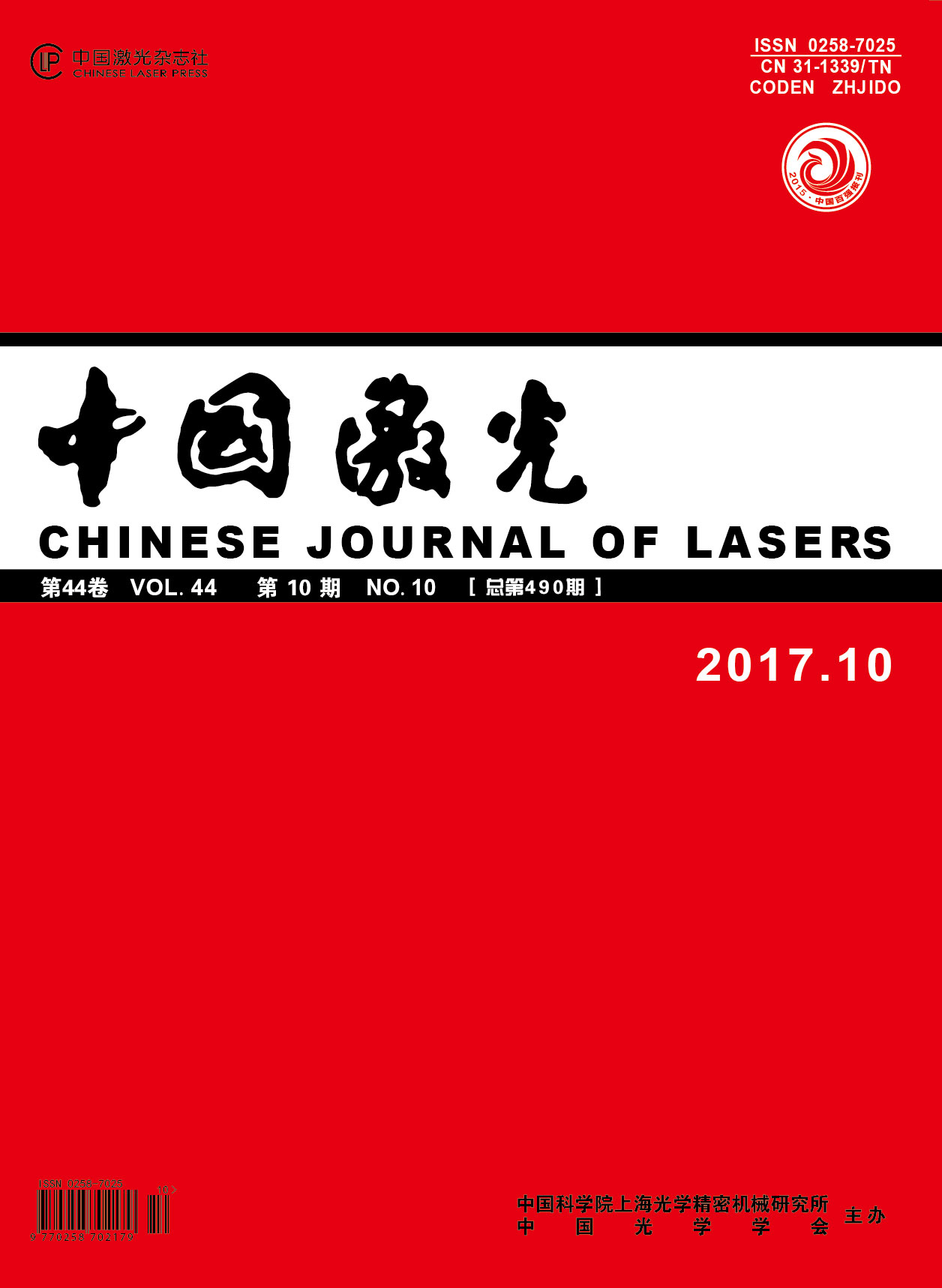强激光作用下导光镜面温度场的影响因素分析
[1] 王小林, 周 朴, 粟荣涛, 等. 高功率光纤激光相干合成的现状、趋势与挑战[J]. 中国激光, 2017, 44(2): 0201001.
[2] 李 源, 陈治平, 王鹏华. 高能激光武器现状及发展趋势[J]. 红外与激光工程, 2008, 37(S3): 371-374.
Li Yuan, Chen Zhiping, Wang Penghua. Development status and prospect of high-power laser beam weapons[J]. Infrared and Laser Engineering, 2008, 37(S3): 371-374.
[3] Endo M, Nagatomo S, Takeda S, et al. High-efficiency operation of chemical oxygen-iodine laser using nitrogen as buffer gas[J]. IEEE Journal of Quantum Electronics, 1998, 34(3): 393-398.
[4] 汪道友. 激光核聚变快点火新方案研究获重要进展[J]. 强激光与粒子束, 2006, 18(2): 324-324.
[5] 闫岸如, 杨恬恬, 王燕灵, 等. 钨粉粒度和形状对选区激光熔化W-x Cu成形与显微组织的影响[J]. 中国激光, 2016, 43(2): 0203007.
[6] 杜燕贻, 安建祝, 束小建. 腔镜热变形对非稳腔光场特性的影响[J]. 强激光与粒子束, 2008, 20(8): 1333-1338.
Du Yanyi, An Jianzhu, Shu Xiaojian. Effect of thermal distortion of mirror on characteristics of laser beam in unstable resonator[J]. High Power Laser and Particle Beams, 2008, 20(8):1333-1338.
[7] 刘泽金, 周 朴, 许晓军. 高能激光光束质量通用评价标准的探讨[J]. 中国激光, 2009, 36(4): 773-778.
[8] 胡小川, 彭家琪, 张 彬. 变形镜热形变及其对光束质量的影响分析[J]. 中国激光, 2015, 42(1): 0102003.
[9] Tuckerman D B, Pease R F W. High performance heat sinking for VLSI[J]. IEEE Electron Device Letters, 1981, 2(5): 126-129.
[10] Anthony A F M, Hopkins A K. Actively cooled silicon mirrors[C]. SPIE, 1982, 279: 196-203.
[11] 彭玉峰, 程祖海. 强激光反射镜基体材料的热畸变特性有限元分析[J]. 强激光与粒子束, 2005, 17(1): 5-8.
[12] 余亮英, 朱海红, 程祖海, 等. 强激光反射镜体结构对镜面热变形的影响[J]. 华中科技大学学报(自然科学版), 2007, 35(6): 108-110.
Yu Liangying, Zhu Haihong, Cheng Zuhai, et al. Analysis of the effects of mirror structure on mirror surface thermo-deformation using finite element methods[J]. Journal of Huazhong University of Science and Technology (Nature Science Edition), 2007, 35(6): 108-110.
[13] 胡攀攀, 朱海红, 左都罗. 流道截面参量对微通道水冷镜热变形的影响[J]. 中国激光, 2011, 38(11): 1102001.
[14] Hu P P, Zhu H H, He C W, et al. Heat transfer and thermal deformation characteristics of liquid-cooled laser mirror[J]. Advances in Mechanical Engineering, 2015, 6(1): 749065.
[15] Hu P P, Zhu H H, He C W. Optimization design of water-cooled mirror for low thermal deformation[J]. Applied Thermal Engineering, 2014, 73(1): 596-605.
[16] Peng Y F, Cheng Z H, Zhang Y N, et al. Temperature distributions and thermal deformations of mirror substrates in laser resonators[J]. Applied Optics, 2001, 40(27): 4824-4830.
[17] 杜少军. 高能激光器及其发射系统的热变形研究[D]. 长沙: 国防科学技术大学, 2001.
Du Shaojun. Study on thermal deformation in high energy laser and transmission system[D]. Changsha: National University of Defense Technology, 2001.
[18] 杨世铭, 陶文铨. 传热学[M]. 北京: 高等教育出版社, 2006.
Yang Shiming, Tao Wenquan. Heat transfer[M]. Beijing: Higher Education Press, 2006.
[19] 张也影. 流体力学[M]. 北京: 高等教育出版社, 1999.
Zhang Yeying. Fluid mechanics[M]. Beijing: Higher Education Press, 1999.
孟令武, 邵帅. 强激光作用下导光镜面温度场的影响因素分析[J]. 中国激光, 2017, 44(10): 1001004. Meng Lingwu, Shao Shuai. Influence Factors Analysis of Temperature Field of Light Guide Mirror Surface Under High Power Laser[J]. Chinese Journal of Lasers, 2017, 44(10): 1001004.






